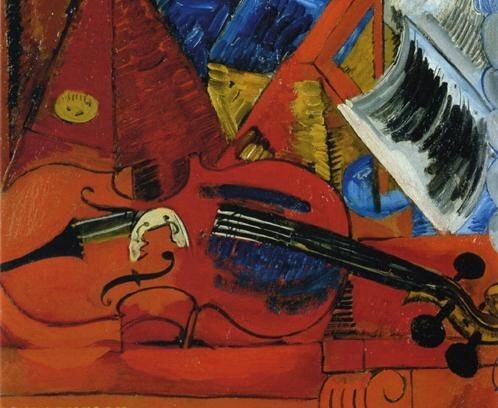
A celebration of Belgian music
Date: Wednesday 12th March 2025
Time: 11.30
Venue: St Mary's church
Location: Church Path, Saffron Walden, Essex CB10 1JP
Artists: Krassimira Jeliazkova - violin
Elizabeth Mucha - piano

Eugène-Auguste Ysaÿe (1858 –1931) Deux Mazurkas de Salon, op 10
-
-
-
-
-
-
-
-
-
-
- Dans le lointain
- Mazurka
-
-
-
-
-
-
-
-
-
César Franck (1822 –1890) Violin Sonata in A major
-
-
-
-
-
-
-
-
-
-
- Allegretto ben moderato
- Allegro
- Ben moderato – Recitativo-Fantasia
- Allegretto poco mosso
-
-
-
-
-
-
-
-
-
For a small country Belgium has produced not only several influential and virtuoso violinists in the last couple of centuries, but also many very fine composers. We open our programme with two short pieces by Eugène-Auguste Ysaÿe, dubbed the “King of the Violin”. Born in Liège in 1858, his playing was renowned for its expressive vibrato and his command of rubato. Like many of the great Belgian virtuoso violinists, such as Henri Vieuxtemps and Charles de Bèriot, he was appointed professor of violin at the Conservatoire of Brussels. He was merely 28! Only the year before, he had been ‘discovered’ while working in Berlin and he began the arduous life of a touring virtuoso, performing throughout Europe, Russia and the United States. However, health issues plagued him and, as his diabetes and neuritis became increasingly worse, he concentrated more on teaching, conducting (he was music director of the Cincinnati Symphony Orchestra between 1918 to 1922), and composing. Among his most famous and challenging works are the Six Sonatas for Solo Violin, Op 27. The two Mazurkas de Salon, op 10 are early works, composed in 1884 when he was 26 but already demonstrate some of the technically challenging demands he would make on violinists.
César-Auguste Franck is mainly considered to be a French composer as he took French nationality later in his life, but he was born in Liège, now part of Belgium. In 1822 though, Liège was part of the United Kingdom of the Netherlands which had been created as a buffer zone between the major European powers following the Napoleonic Wars. After settling in Paris, Franck became mainly well-known as an organist, renowned for his improvisational abilities. His compositions had a harder time being accepted though. In 1886, he wrote a violin sonata as a marriage present for the 28-year-old virtuoso violinist, Eugène-Auguste Ysaÿe, who promoted it for many years. This is now considered to be one of Franck’s most celebrated compositions and one of the finest sonatas composed for violin and piano.
It has been posited that Franck’s sonata is one of the candidates for Marcel Proust’s fictional “Vinteuil Sonata” in his famous novel, “In Search of Lost Time”.
